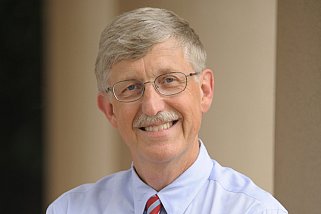
At least 80 percent to 85 percent of Americans should receive the COVID-19 vaccine for the country to reach herd immunity, said National Institutes of Health Director Francis Collins in a Jan. 6 interview with the Washington Post.
“Herd immunity requires the majority of a population to be immune,” Dr. Collins said during the live online interview. “I would say, let’s go for 80, 85 percent. That ought to be sufficient to achieve that herd immunity. And that really is what we ought to try to achieve as soon as we can get there in this country.”
At that point, Collins added, the virus that causes COVID-19 “starts to lose its grip on us and basically has a hard time propagating.”
Collins acknowledged that “that’s a lot of people,” and noted that about 300 million of the nation’s 330 million Americans need to be vaccinated “sometime in the coming months.”
Once that happens, he said, then the country can begin to imagine putting the pandemic in its rearview mirror.
Collins also said that COVID-19 immunizations soon will be done through pharmacies, which could help the nation reach such vaccination targets sooner.
Currently, the doses on hand now from Pfizer and Moderna should make it possible for approximately 100 million to 120 million people to receive their first dose by the end of this March, said Collins. Both companies’ vaccines require each person to receive two doses.
But as greater manufacturing capacities possibly improve during April, May, and June, the NIH director said that the United States then should be able to reach the 300 million vaccinated milestone by the June-July period.
“But everybody needs to recognize that that’s not tomorrow, that’s not February,” said Collins.
As of Jan. 5, the U.S. Centers for Disease Control and Prevention (CDC) reported it had administered more than 4.8 million first doses of COVID-19 vaccines in the country and distributed more than 17 million doses.
Meanwhile, Collins said there’s a lot of hard work to do “to prevent the really bad things that are happening here in January with this virus, which is running really quite wildly across the country and causing a great deal of misery.”
Collins advised against people relaxing mask wearing and social distancing efforts. “It’s time to double down,” he said, pointing out that a more contagious variant of COVID-19 has swept through the United Kingdom and has reached at least five states in the U.S.
While the mutated virus isn’t more severe, its contagiousness could travel quickly, further straining the already overwhelmed U.S. healthcare system, Collins said, adding that the new virus has a 70-percent higher ability to transmit between people.
“We should think about where that will take us in the U.S.,” he said. “It doesn’t seem to be more severe, but we already have an overloaded system.”
So far, there’s no reason to believe these variants would be able to resist the current vaccines, but real experiments are now under way, said Collins. If the variants could resist the existing vaccines, then “that would be quite a large change indeed,” he said, adding that the U.S. needs an upgraded early warning system more comparable to the systematic system operated by the UK.
Collins, who was appointed the 16th NIH director by former President Barack Obama and confirmed by the Senate in 2009, also was selected by President Donald Trump to continue to serve as the person who oversees the work of the largest supporter of biomedical research in the world.
And as the boss of Dr. Anthony Fauci, who is director of the NIH National Institute of Allergy and Infectious Diseases, Collins said he speaks to Fauci “almost every evening” to ensure their public messages remain on the same page.
The pandemic has been highly politicized, Collins said, and it has been a tumultuous year. “Politics hasn’t helped,” he said. “The idea that mask wearing would become so political… it’s a life saving device and there shouldn’t be all of this extra baggage.”
Collins said he would not have fired Fauci if the White House had requested it. “I would not be able to do that,” he said, adding that he was not put under pressure to do so.
To encourage more Americans to get vaccinated — particularly communities of color — Collins, Fauci, and U.S. Health and Human Services Secretary Alex Azar on Dec. 22, 2020 received their first doses of the Moderna COVID-19 vaccine during a live broadcast.




